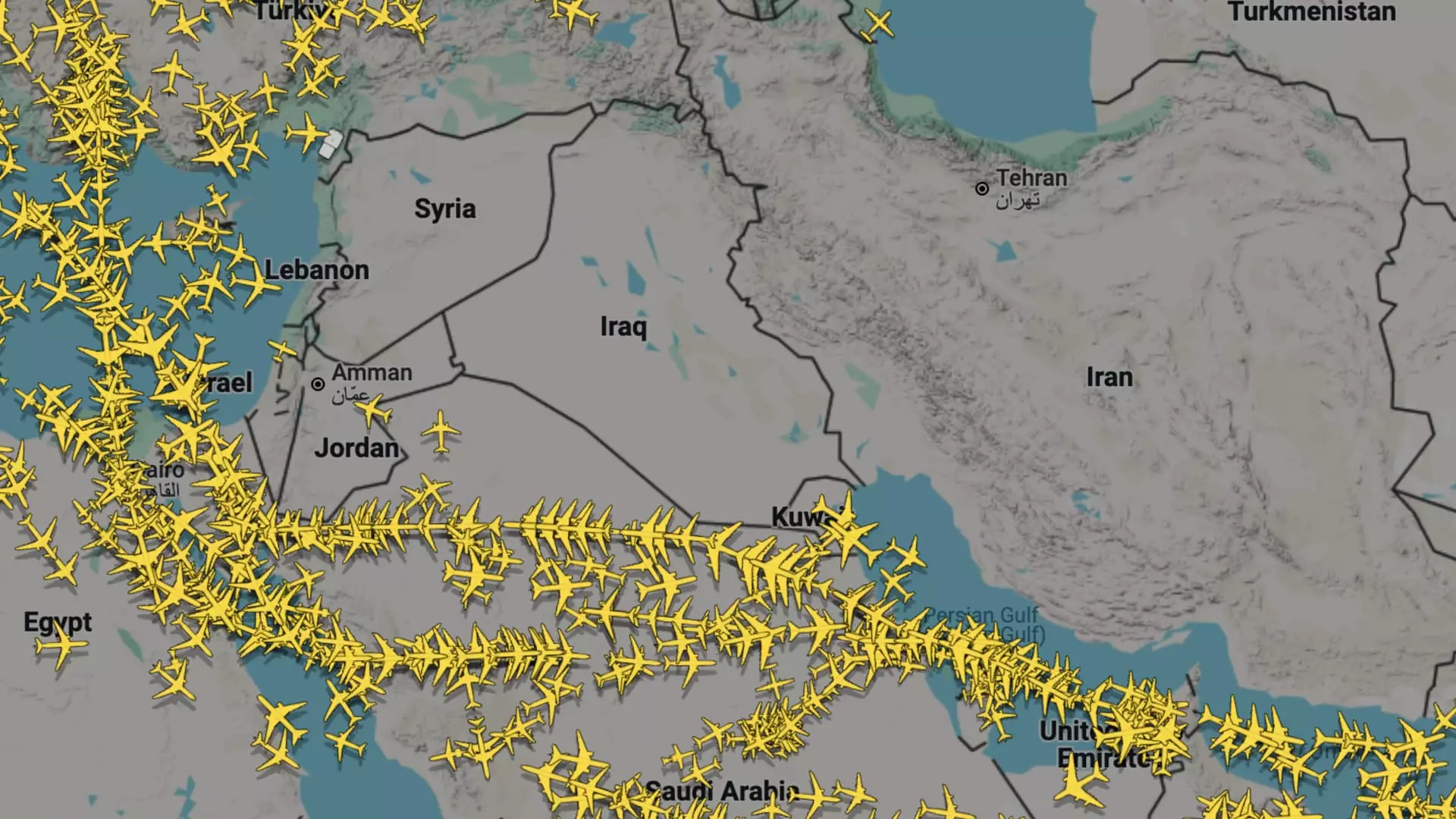In an era where global connectivity is paramount, the recent upheaval in the Middle East has exposed the fragility of international air travel. Following Israeli missile strikes on Iran, a series of immediate and unyielding reactions unfolded in the aviation industry. Major carriers, such as Delta Air Lines and United Airlines, swiftly canceled flights to Tel Aviv, a common hub for travelers. This reaction underscores the heightened state of global anxiety surrounding military action, which has not only disrupted individual travel plans but also significantly impacted the operations of airlines.
The environmental independence enjoyed by airlines is being overshadowed by political turbulence. It is astonishing to witness how swiftly airlines recalibrate their operations in response to geopolitical strife. The decision by El Al, Israel’s flagship carrier, to indefinitely suspend its service reflects an unnerving commitment to passenger safety amidst the chaos. Rather than hesitating, the airline took a decisive stance in alignment with the directives from state security agencies, shedding light on how deeply intertwined governmental policy and corporate decisions have become in our interconnected world.
Safety or Convenience? The Dilemma for Airlines
As airlines withdraw from volatile regions, a pattern emerges—a reluctance to engage with war-torn nations. The circumstances compel us to question whether the priority lies in genuine safety or merely in preserving corporate profit margins. In the wake of the escalation, airlines scrambled to offer travel vouchers and waivers for changing flights, which can feel like empty gestures in the face of uncontrollable national and international crises. Passengers, caught in this web of logistical nightmares, find themselves grappling with uncertainty rather than the joy of exploration that travel often brings.
Moreover, the effort to redirect flights en route to Israel might have unintended consequences that ripple through global supply chains and commerce. The lengthened detours required to avoid danger zones could impose additional costs—likely pushed down onto consumers eventually—thus illustrating how the fallout from conflict transcends the immediate crisis.
Flawed Worldviews on Warfare and Innocence
As a center-left liberal, I am disheartened by the normalization of conflict as a backdrop for aviation and travel. The optics surrounding these airline decisions suggest that the stakes of warfare have been dehumanized, boiled down to mere figures and flight paths in the corporate world. The stories of family vacations turned into cancellations and business travel halted due to the whims of war paint a grim picture of our global society’s marginality when it comes to empathy for those affected by violence.
What remains absent in these dialogues is a committed effort to denounce the underlying causes of such conflicts. The true victims of these skirmishes are often innocent civilians—individuals whose only wish is to live peacefully and travel freely. The aviation industry’s dogged adherence to corporate strategies of safety and profitability often overlooks its impact on human lives caught in these political games. We must navigate these turbulent skies not only with operational caution but also with an ethical compass that prioritizes peace over profit, fostering a sense of global solidarity rather than isolationism.
In relation to these developments, it is crucial for consumers and navigators of international relations alike to reflect on the implications of ceasing operations in politically fraught areas. Are we reinforcing a cycle of neglect and militarization, or can we challenge ourselves to advocate for a world where travel becomes an emblem of unity rather than conflict? Navigating these complex waters requires active engagement and a rethinking of priorities—something our world desperately needs now more than ever.



Leave a Reply